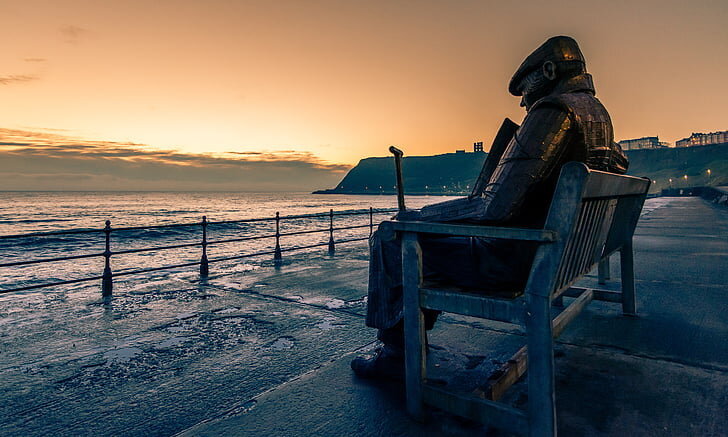Dafydd ap Gwilym (?1320-?1350?)
Dafydd ap Gwilym is not only one of the great poets of the Welsh Tradition, but of the European Middle Ages. If you haven’t heard his name before, you’ve missed out.
For a non-Welsh reader the attraction of Dafydd's poems in translation often lie in the persona he creates. He may be one of the great love poets of the Middle Ages, but his range marks him out. There’s desire to regret, with the usual amount of unrequited pining thrown in but the mix is seasoned with self-depreciation, humour, and an enjoyment of his own absurdity.
This particular poem is almost a cliché. The old poet looks back on his life and sees no future. It’s all over. ‘unless she beckons’. In which case everything he’s said should be immediately forgotten.
It's one of those final lines that is awe inspiring in its 'correctness'. It closes the poem on a visual image that realigns everything that comes before it. It's as good as it gets.
And as far as I can tell it's not what Dafydd wrote.
On the University of Swansea Website, the last four lines of the translation read:
There rises in me (poetry's memory)
no joyful thought or passion,
nor any pleasant talk of them,
nor ever love, unless a girl asks for it.
Rachel Bromwich translates the same lines as:
No joyful thought nor passionate desire
Arises in me-memory of song-
Nor is there any talk concerning them
No ever more of Love. Unless a girl should ask?
Merchant and Feletra, whose translation I’m reading, point out the difficulty of transferring Dafydd's superb control of a fiendish poetic into English and hope 'If in our versions the poet seems uninhibited, eccentric, and outrageously ambitious, we have partly succeeded.'
Perhaps the best testimony to their success is that last line. To make the poem work as an English poem, they have made an imaginative leap from ‘ask’ to ‘beckon’ which as far as I can tell is not supported by the dictionary. It’s one of those fine moments of creative translation.
Unless She Beckons poems of Dafydd ap Gwilym. Translated by Merchant and Faltra. Redcoat books. 2018
Dafydd ap Gwilym. Poems Translated by Rachel Bromwich. Gomer Press 1982.





